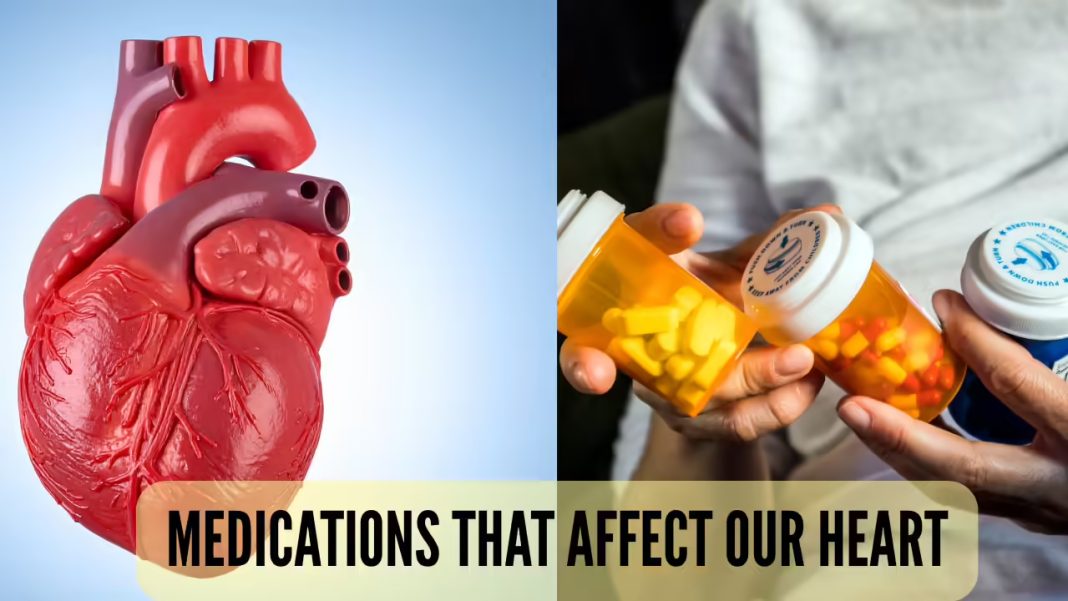We all want to stay healthy, and often, that means reaching for a quick fix. Whether it’s an over-the-counter pain reliever for a nagging headache, a decongestant for a stuffy nose, or even a popular supplement promising more energy, we trust these everyday solutions to make us feel better. But what if some of these seemingly innocuous drugs were quietly working against your heart health? Your heart doctor wants you to be aware. It’s not about fear, but about empowering you with knowledge to make safer choices for your most vital organ.
The Everyday Culprits in Your Medicine Cabinet
1. NSAIDs: Your Go-To Pain Relievers
Nonsteroidal anti-inflammatory drugs (NSAIDs) like ibuprofen (Advil, Motrin) and naproxen (Aleve) are superstars for tackling pain, fever, and inflammation. They’re readily available and incredibly effective. However, regular or high-dose use, even for a short period, can be problematic for your heart. NSAIDs can cause your body to retain fluid, which can elevate blood pressure. For individuals already managing high blood pressure or heart failure, this can be particularly dangerous, potentially worsening their condition or increasing the risk of heart attack and stroke. Always use the lowest effective dose for the shortest duration, and consult your doctor if you rely on them frequently.
2. Decongestants: Clearing Your Sinuses, Straining Your Heart
When cold and allergy season hits, many of us reach for decongestants containing pseudoephedrine or phenylephrine. These ingredients work by constricting blood vessels, which helps reduce swelling in your nasal passages. The downside? This constriction isn’t limited to your nose; it can affect blood vessels throughout your body, leading to an increase in blood pressure and heart rate. For those with pre-existing heart conditions, high blood pressure, or irregular heart rhythms, decongestants can significantly elevate cardiovascular risk. Opt for saline sprays or other non-decongestant options if you have heart concerns, and always check labels carefully.
Beyond the Basics: Other Overlooked Offenders
3. Corticosteroids: Inflammation Fighters with a Heart Side Effect
Often prescribed for conditions ranging from asthma and allergies to autoimmune diseases, corticosteroids like prednisone are powerful anti-inflammatory medications. While crucial for managing many serious conditions, long-term use, and even short bursts, can have significant cardiovascular impacts. They can lead to fluid retention, elevate blood pressure, and even contribute to unfavorable changes in cholesterol levels. If you’re on a corticosteroid, discuss these potential effects with your doctor and ensure your heart health is regularly monitored.
4. Certain Herbal Supplements & Diet Pills: “Natural” Isn’t Always Safe
The allure of “natural” health products and quick-fix diet pills is strong, but many contain ingredients that can quietly stress your heart. Supplements marketed for weight loss or energy often contain stimulants that can dangerously increase heart rate and blood pressure, or even interact negatively with heart medications. Some herbal remedies, while beneficial for some, can interfere with blood thinners or other cardiovascular drugs, leading to unexpected and dangerous side effects. “Many patients are diligent about their prescribed heart medications but completely overlook the potential impact of over-the-counter drugs or supplements,” explains Dr. Elena Petrova, a cardiologist often consulted by TrendLyric. “It’s a critical blind spot that can have serious repercussions.” Always disclose ALL supplements you take to your doctor, even if you consider them benign.
5. Excessive Caffeine: More Than Just a Pick-Me-Up
For many, caffeine is an indispensable start to the day. While moderate caffeine intake is generally safe for most healthy adults, excessive consumption – especially from energy drinks, high-dose supplements, or multiple strong coffees throughout the day – can be detrimental. It’s a powerful stimulant that can increase heart rate, temporarily raise blood pressure, and, in sensitive individuals, trigger palpitations or irregular heart rhythms. If you notice your heart pounding or racing after too much caffeine, it’s a clear signal to cut back.
Your heart is a workhorse, and protecting it means being vigilant about everything you put into your body, not just prescription medications. These five categories of common drugs highlight how easily everyday habits can impact your cardiovascular health without you even realizing it. The takeaway? Be an informed patient. Always discuss all medications, including over-the-counter drugs and supplements, with your doctor or pharmacist. They can help you understand potential risks, identify safer alternatives, and ensure your heart stays strong and healthy for years to come.




